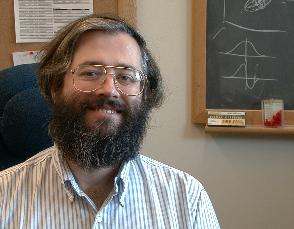A tribute to George Moody
2021-02-16

We are deeply saddened to announce the passing of George Moody, one of the original PhysioNet team. George passed away as a consequence of COVID-19 on February 13, 2021, surrounded by his family, Edna, Benjamin, Jeremy and Melissa.
George has been a fundamental part of PhysioNet since the beginning, stretching back into the late 70s and early 1980's. George developed the WFDB libraries, and much of code that can be found on PhysioNet today, which underpins the Research Resource for Complex Physiologic Signals, and the fundamentals of ECG signal processing. George's work spanned state-of-the-art QRS detection, beat classification, noise assessment, and heart rate variability, among other areas. A pioneer and stalwart of open source principles, his work has blazed a trail in the field of physiological signal processing. This was acknowledged in 2016 by the AAMI, which awarded him (jointly with Ary Goldberger and Roger Mark) its most prestigious prize, the Laufman-Greatbatch Award.
George is perhaps best known for his design and implementation of the PhysioNet/CinC Challenges, which he ran for 15 years, from inception in 2000, until 2014, after which he retired due to ill health. These Challenges have pushed the field forward, stimulating research and translation, long before most, if not all, other public data science competitions began.
George was generous with his time and took pride in answering almost every email he received. He tirelessly devoted himself to the field, supporting everyone, from the newest student, to the giants of industry. At Computing in Cardiology, which he attended every year from 1979 to 2014, he was often the star of the show, generating a unique buzz around the Challenges. He also served on the board of the conference for longer than anyone, and was an active member of that community for over 30 years, contributing over 70 articles to the proceedings.
George began his career as an undergraduate at MIT, studying physics. His (sometimes supernatural) skill at C coding led him to work on the seminal MIT-BIH Arrhythmia Database with Roger Mark and Ary Goldberger. (Still today, this database is at the core of many FDA applications.) After his student days George became a research scientist at MIT in Roger Mark's group and remained there until retirement. As with all good physicists, George was a polymath. You could talk to him about any subject and realize his depth of thought was exceptional. There wasn't a subject on which he couldn't offer a genuinely deep and informed opinion. Yet he listened to everyone and treated all ideas and views with the utmost respect.
George was a man who appreciated life to its fullest. Perhaps his most impressive characteristic was that he always put his family first. A wonderful father and husband, he always made time for those he loved.
Edna mentioned that George's favorite charity was Partners In Health (pih.org), and requested that anyone wishing to make a gesture in remembrance of him, to please direct it there.
George was loved by us all, and we miss him enormously. He leaves an enduring legacy for the next generation, although he would be much too humble to ever acknowledge that fact.

![[MIT photo logo]](/static/images/mit.png)
![[IMES photo logo]](/static/images/imes.png)
![[HST photo logo]](/static/images/hst-logo.png)